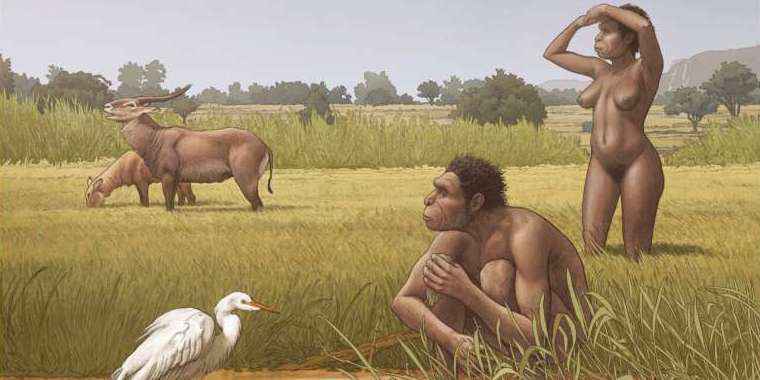
今や世界人口は78億人を突破していますが、これらの人は全て「ホモ・サピエンス」というたった1種に属します。
しかしかつては、幾種類もの人類が地球を歩き回っていました。
その中で、どの種がホモ・サピエンスの直接祖先に当たるのかは、今もって調査中です。
そしてこのほど、カナダ・セルビア・中国・アメリカの国際研究チームは、現代人の直接祖先の可能性が高い人種の学名を新たに命名しました。
その名は「ホモ・ボドエンシス(Homo bodoensis)」。
ホモ・ボドエンシスは、約50〜60万年前のアフリカにいた人種で、現代人につながる系統の解明に役立つと考えられます。
研究は、10月28日付けで学術誌『Evolutionary Anthropology』に掲載されました。
目次 混沌とする「人種」の世界 混沌とする「人種」の世界 発見された古代人の化石が、既知の種に属するのか、あるいは新種なのかを決めるのは、非常に難し…
参考文献
Newly named human species may be the direct ancestor of modern humans
https://www.livescience.com/new-human-species-named-bodoensis
Experts name new species of human ancestor
https://phys.org/news/2021-10-experts-species-human-ancestor.html
元論文
Resolving the “muddle in the middle”: The case for Homo bodoensis sp. nov.
https://onlinelibrary.wiley.com/doi/10.1002/evan.21929

